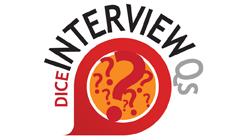Demand for IT business analysts is skyrocketing as the use of data grows and more companies push the envelope on productivity gains. The need isn’t going to ease off anytime soon: The Bureau of Labor Statistics predicts 876,000 business analysis-related professionals will be needed by 2020.
In interviews, many hiring managers probe a BA’s ability to solve problems, create value and nurture productive relationships with stakeholders, says Kevin Brennan, CBAP, PMP, chief business analyst and executive vice president for the International Institute of Business Analysis. There’s a fine line between good and great BAs, he says, and questions like these expose those subtle nuances.
Click here for business analyst jobs.
Is it more important to be a subject matter expert or a facilitator?
- What Most People Say: “Subject matter expertise isn't critical, since stakeholders are engaged in every decision. My job is to help them translate their business knowledge into solutions for critical business problems.”
- What You Should Say: “My job is to think and act like a consultant, not replace SMEs. I elicit process improvements that elevate business performance by tapping stakeholders’ vast expertise, and synthesizing internal benchmarks and data from peer organizations. Sometimes, BAs need to challenge the status quo. I know how to test traditional thinking without ruffling too many feathers.”
- Why You Should Say It: BAs shouldn't try to replace SMEs but they do need a fundamental understanding of how a business works. Furthermore, a BA who just accepts the opinions of SMEs isn't adding value. A great BA elicits cutting edge ideas and takes the lead in aligning technical requirements with the business strategy.
What does a good relationship with a project manager look like?
- What Most People Say: “My job is to work closely with and support the PM. They usually need my help with change control and requirements management.”
- What You Should Say: “Our roles and perspectives differ. I recognize that and do my best to partner with the PM. For example, I need to focus on business value and making sure we do the right thing, while the PM has to make sure things get done right. To avoid straining relationships, I typically justify my ideas and lobby for changes in direction or cancellation of a project.”
- Why You Should Say It: A business analyst shouldn't see their role as adversarial to the PM. Business analysts and project managers are most effective when they have some degree of independence and come at a problem from different perspectives, yet share a single goal.
How do you work with a business case and what would you do if one isn't provided?
- What Most People Say: “I don’t typically review the business case. In fact, I'm not always sure one exists.”
- What You Should Say: “Initially, I review the goals in the business case to make sure I understand the business strategy. I ensure all features and requirements support the goals and make recommendations if a feature can't be delivered at a beneficial cost. I revisit the business case throughout the project to ensure it remains valid and initiate changes as we work through the requirements. In the absence of a business case, I’ll work with the sponsor and key stakeholders to reach an effective and shared definition of business success.”
- Why You Should Say It: Most companies don’t develop business cases for projects, so the BA has to carry the ball. That means they must be able to define a project’s business value, gain agreement and ensure the value remains relevant and meaningful throughout the lifecycle of the project. Since project scopes often change, a BA must be prepared to support and address changes as they arise.
What would the perfect project engagement look like?
- What Most People Say: “Ideally, I’d have all the time I need to execute the requirements. Stakeholders are readily available, understand the criteria for business success, and agree on what needs to be done. Finally, the development team and the PM understand the importance of good requirements and take the time to create them. What’s that? Oh yes, I did ask for a pony as a child.”
- What You Should Say: “I realize that I will never work under ideal conditions, so I roll up my sleeves and work with the project team to develop the requirements. Since stakeholders are busy running the company, I use a mix of on-the-job investigation, research, benchmarking and other methods to gather information and help them decide what they need. I find that Agile or iterative teams work best since we can change requirements on the fly and work on future iterations.”
- Why You Should Say It: Rather than talk about how great it would be if everyone treated business analysis work as the only thing that mattered, a great BA knows that their job is to help the business build the right solution and succeed under any conditions. Speed to market matters and the BA has to aim for good enough, not perfection.
“How long it takes to deliver a solution affects its value,” says Brennan. “BAs must be flexible and demonstrate their ability to balance analysis with speed during an interview.”
Related Stories
- The Basics of the Business Analyst Career Road Map
- 6 Skills a Great Business Analyst Should Have
- Big Data Widens Opportunities for Business Analysts
How does your resume look? Is it enough to land the interview? If you're thinking it needs a little work see what business analysis certifications could do to make you a stand out candidate.
Curious about how you can be even more prepared for your interview? Here's some more business analyst interview questions to help you land the job.
Once you've aced your interview and are ready for salary negotiations, make sure you know what you should be making for your business analyst salary.

